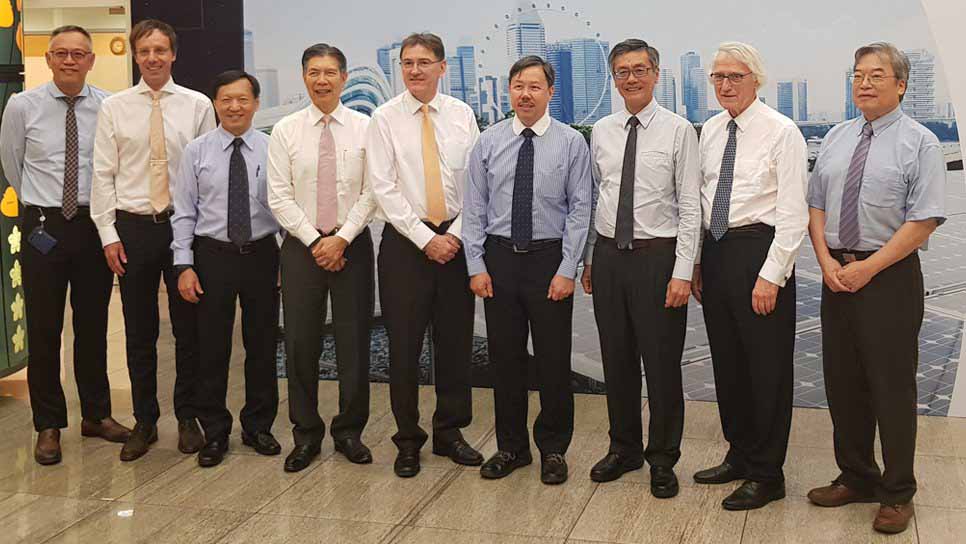Press Release
05 April 2018

[Left to Right] Mr Lim Kok Kiang, Assistant Managing Director, EDB; Dr Thomas Reindl, Deputy CEO, SERIS; Dr Yeoh Lean Weng, Director (Urban Solutions and Sustainability), NRF; Er Edwin Khew Chairman, Sustainable Energy Association of Singapore (SEAS); Prof Armin Aberle CEO, SERIS; Mr Hugh Lim, CEO, BCA; Prof Tan Eng Chye President, NUS; Prof Joachim Luther, Professor Emeritus at the University of Freiburg and Director Emeritus of the Fraunhofer Institute for Solar Energy Systems, Freiburg and Founding CEO of SERIS; Prof Philip Liu Vice President (Research & Technology), NUS.
The Solar Energy Research Institute of Singapore (SERIS) announced three flagship research and development projects aimed at diversifying the industrial uses of solar power, during its 10th anniversary celebration on Thursday (5-April):
In a statement congratulating SERIS on its 10th anniversary, Deputy Prime Minister Mr Teo Chee Hean noted that solar energy is presently the best alternative energy option for Singapore, in terms of economic and technical viability. For instance, the costs of solar energy have been reduced by about 85 per cent in the last decade, and are now competitive with fossil fuel-based power in many countries, including Singapore. By 2020, Singapore aims to put in place enough solar PV systems to supply 350MWp of electricity - about 5 per cent of projected peak electricity demand here.
Deputy Prime Minister Mr Teo Chee Hean said there is a global shift towards renewable energy and that Singapore is in a good position to trial cleantech solutions, which can be scaled for other cities in the Asia-Pacific. He added that research initiatives and supporting services have helped to anchor a new ecosystem of more than 100 clean energy companies here, an effort that SERIS has played a large role in.
SERIS, housed in the National University of Singapore, was founded in 2008 as a government initiative to stimulate the establishment of clean technology as a future pillar of the economy. Among SERIS’ breakthroughs is a real-time monitoring system with high reliability and availability. The monitoring system provides the backbone for the well known "Live irradiance map of Singapore", which provides data that can be used to develop ways to overcome the intermittency of solar energy, due to factors like cloud cover. The institute is also a forerunner in developing new solar panels, including the TwinPeak panels, which have at least 7 per cent more power than standard panels.
Press Release
05 April 2018
Speech By Prof Aberle Armin-SERIS
05 April 2018
Speech By Prof Tan Eng Chye - SERIS
05 April 2018